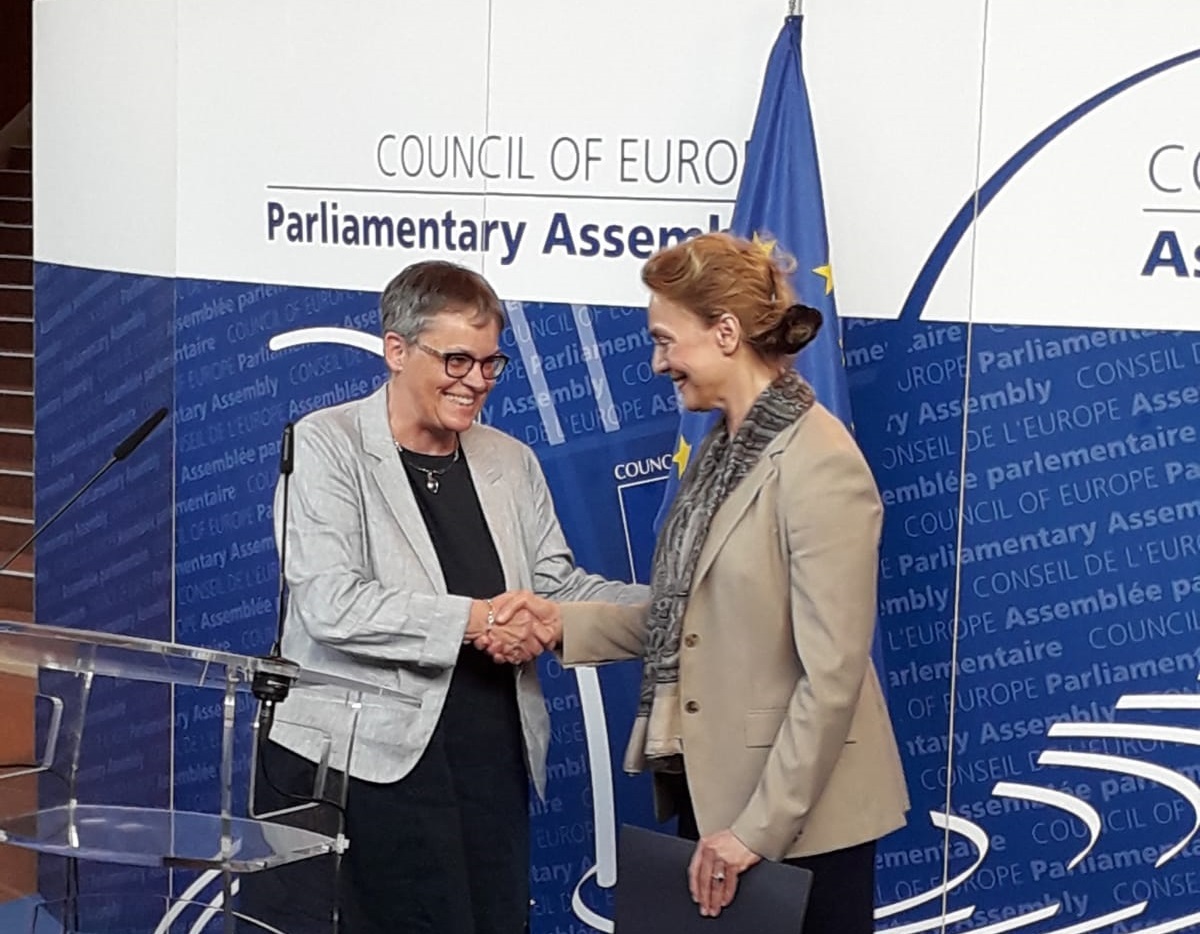
Zagreb - Croatian Foreign and European Affairs Minister Marija Pejčinović Burić was elected the new Secretary-General of the Council of Europe by secret ballot held in the CoE Parliamentary Assembly in Strasbourg on Wednesday evening.
Pejčinović Burić will succeed Thornbjorn Jagland, whose second term in this post expires in October. Jagland, a former Norwegian prime minister and foreign minister, became the 13th Secretary General of this international organisation in September 2009 and was reelected in 2014 for the second term.
Pejčinović Burić and Belgian Foreign Minister Didier Reynders, were the two nominees shortlisted for the 14th Secretary-General of the Council of Europe earlier this year. Apart from them, the other two candidates in the first round were former Lithuanian premier and lawmaker, Andrius Kubilius as well as a former Greek foreign minister and parliamentary deputy, Dora Bakoyannis. The Committee of Ministers interviewed the four candidates separately in March, before deciding to shortlist the two candidates.
The Parliamentary Assembly of the Council of Europe consists of 324 deputies from national parliaments of the 47 member-states.
Prime Minister Andrej Plenković said on Wednesday morning that Croatia had done a good job regarding the candidacy of its Foreign and European Affairs Minister Pejčinović Burić for the post of Secretary General of the Council of Europe. He said that Croatia had made a good impression during its six-month chairmanship of this organisation last year. "I think we earned the image of a country that can make a contribution."
Pejčinović Burić is the second woman in history at the organisation's helm and the first person from Central and Southeastern Europe to fill this position.
Pejčinović Burić, who became the Croatian foreign minister in June 2017, is a fluent in French, English and Spanish and has passive knowledge of German. The new Secretary General of the CoE, born in 1963, graduated from the Faculty of Economics at Zagreb University in 1985, and attended the College of Europe at Bruges in Belgium and a post-graduate study n Warsaw to earn a master's degree in European Studies.
Croatia joined the Council of Europe in 1996.
The Council of Europe was established in 1949 as an international organisation whose aim is to uphold human rights, democracy and the rule of law in Europe.